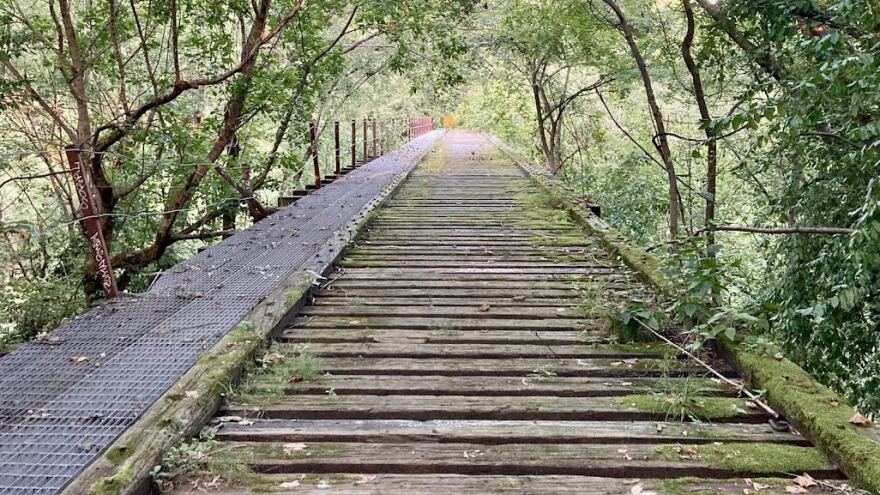The United States Court of Federal Claims has ruled that landowners along a planned railroad conversion project in Southern Indiana should receive compensation from the federal government.
The City of New Albany and the Indiana Trails Fund are in negotiations with railroad company CSX to turn out-of-service tracks into a recreational trail as part of the “Rails to Trails” initiative. The project would include more than 60 miles of railroad between New Albany and Bedford.
About 50 people who own property along the line filed lawsuits claiming the federal government owes them money, citing statutes regarding railroad conversions. A federal judge ruled in their favor in one of those cases on Feb. 18.
“[The court] held the government is liable for taking these landowners' property and has to move forward with paying them their just compensation,” said attorney Lindsay Brinton, who represents the landowners. “We now are in the stages where we're hiring a local appraiser, and we're getting out and valuing the amount of the government’s taking. So it's a big step in this case.”
CSX discontinued use of the line in 2010 and entered discussions to transfer the tracks to trail developers in early 2018. The landowners filed suit shortly after the federal government allowed those negotiations to proceed.
CSX’s effort to sell or lease the property is part of a process called “railbanking,” which was implemented by the federal government in 1983 to help preserve rail lines across the country. It allows railroad companies to transfer responsibility of lines to third parties for recreational purposes on an “interim” basis, leaving open the possibility that they could be reactivated as railroads.
Brinton said when the line started in the 19th century, the railroad company was granted an easement that allowed them to use the property, not own it. She said state law dictates it be returned to surrounding landowners when railroad use is discontinued.
Federal railroad conversion laws supersede that state statute, though, and the Fifth Amendment requires the federal government to provide “just compensation” to landowners if their property is seized under certain circumstances. Though the deal to sell or lease the railroad tracks for the project isn’t finalized, the federal government’s go-ahead means landowners are entitled to compensation.
“What we have is a situation where it's called inverse condemnation, where the taking occurs first,” Brinton said. “And then if the landowner wants to be compensated for that taking, the landowner has to file an affirmative claim for compensation. So they actually have to pursue litigation in order to be paid for the taking of their property.”
Brinton said the “Rails to Trails” project is legal and following established precedent, but landowners are entitled to money. She said hundreds of other landowners in Southern Indiana could also have a claim to compensation.
“I would say landowners should err on the side of it being worth looking into.”
Brinton said landowners in Indiana own everything up to the middle of the railroad tracks unless the deed states otherwise, under a rule called the “centerline presumption.”
Neither New Albany nor the Indiana Trails Fund are directly involved in the litigation.
John Boyle is a corps member with Report For America, a national service program that places journalists into local newsrooms. John's coverage of Southern Indiana is funded, in part, by the Caesars Foundation of Floyd County, Community Foundation of Southern Indiana and Samtec, Inc.





